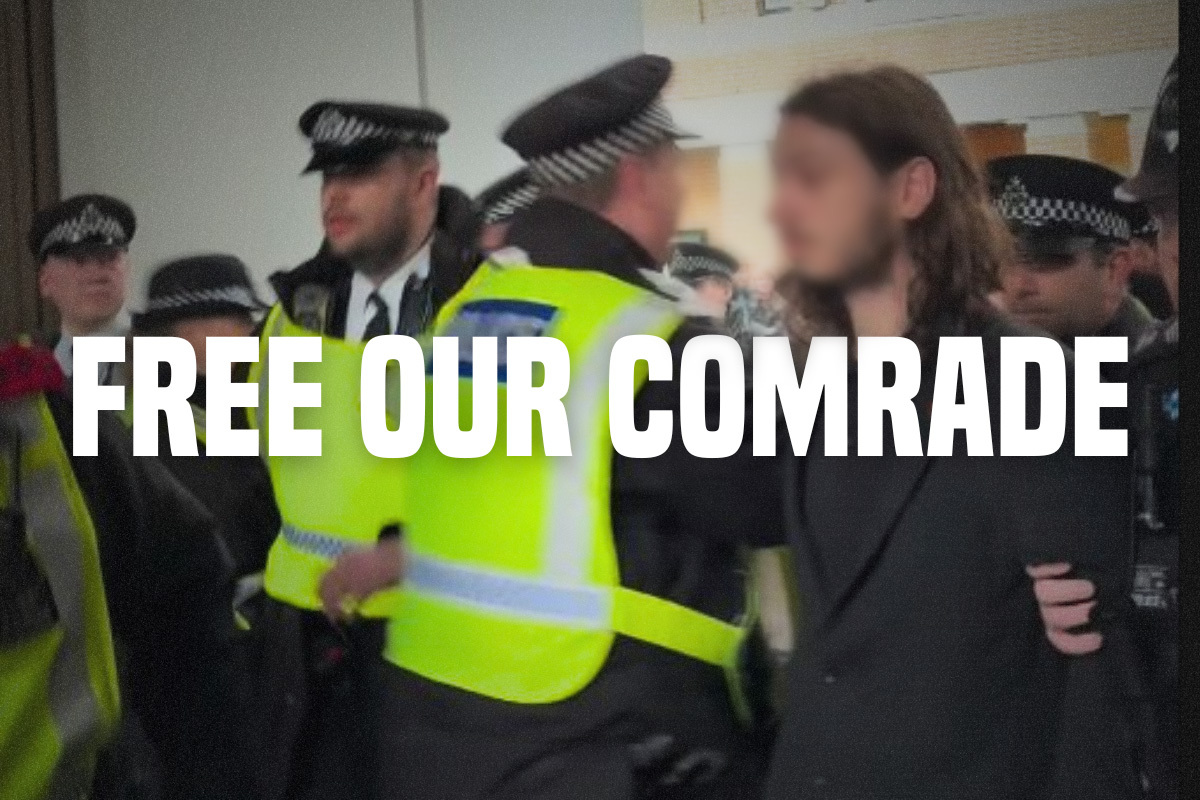The following article has been published in a Cambridge student magazine outlining the position of the Cambridge Marxist Diccussion Group – we are reproducing it here for the interest of our readers.
 Last October, I helped out at the Freshers’ Fair on the stand
Last October, I helped out at the Freshers’ Fair on the stand
for the Marxist Discussion Group. This was the fourth year that I have been at
the FF for a left-wing organisation of some kind. In previous years it has
always been a tiring affair, involving apathetic responses at best, along with
a fairly constant stream of arguments with Tories. This year, however, it was
different. Our leaflets flew off the table; our signup sheets were filled; and
our copies of The Communist Manifesto sold like hot cakes.
The current recession has given people a thirst for knowledge;
a desire to understand what is happening. People no longer need to be convinced
of the failure of Capitalism – they can see and experience it for themselves.
The public look to the bourgeois economists and reformist politicians for
answers and they get no explanation other than some muttering about “greedy
bankers”. Paul Krugman, the 2008 winner of the Nobel Prize for Economics even
went so far as to say that, “most work in macroeconomics in the past 30 years has
been useless at best and harmful at worst.”
With no answers from
traditional sources, intrigued and inquisitive people are turning to the
readings of Marx. Publishers in Germany claimed that their sales of Das Kapital
increased by over 300% in the autumn of 2008 as the severity of the recession
became apparent. This is no surprise; Marx (and Engels) explained the nature of
Capitalism, with its tendency to go through periodic crises, over 160 years ago
in The Communist Manifesto: “It is enough
to mention the
commercial crises that by their periodical return put the existence of the
entire bourgeois society on its trial, each time more threateningly…In these
crises, there breaks out an epidemic that, in all earlier epochs, would have
seemed an absurdity — the epidemic of over-production. Society suddenly finds
itself put back into a state of momentary barbarism…and why? Because there is
too much civilisation, too much means of subsistence, too much industry, too
much commerce”.
The point of Marxist theory, however, is not to be able to say
“I told you so” every time a recession comes about. It is not a dogma that
should be learnt and recited in a religious manner. There are no rigid rules to
Marxism that must be blindly followed in a mechanical manner, like the
assembling of some piece of Ikea furniture. Rather, Marxism is a set of ideas
and theory that aims to provide people with the necessary analytical tools to
assess each situation and understand what processes are at play. It is all very
well-and-good wanting to change the world, but how can you do this without
first understanding what it is you are trying to change? Marxist ideas are like
the map and compass for an explorer in the mist: they give you an idea of where
you currently stand, show you the destination, and provide a process of working
out how to get there. This intrepid traveller may lose his bearings a few
times, and perhaps become disorientated, confused, and disillusioned at points
along the way, but ultimately his tools can get him there. There are many ways
of getting from A to B and there is no specific set of directions that one must
follow.
Whilst Marx pointed out the inherent contradictions in
Capitalism and showed that Capitalism would create “its own grave-diggers” in
the form of the worldwide proletariat, Marxist thinkers, such as Lenin and
Trotsky, always emphasised that there is no such thing as “the final crisis of
Capitalism”. The bourgeoisie will always find a way out of a crisis, more
often-than-not at the expense of the working class. Nowhere is this more
evident that in Britain today, as all the major parties in the UK talk about
the need to cut huge sections of public spending in order to reduce the budget
deficit. For example, Lord Mandelson recently announced that £533million would
be cut from spending on universities, which amounts to a reduction in the
budget for universities of approximately 7%.
If conditions are so bad for the working class worldwide, then
why haven’t global mass movements erupted and brought down Capitalism? Firstly,
it must be remembered that the movements of the masses do not follow events in
a strictly linear, mechanical fashion. Trotsky always emphasised that
consciousness operates dialectically, and that there would often be a lag
between events and revolts. It’s not only Marxists who understand this
dialectical relationship between objective conditions and the consciousness of
the masses; even the bourgeois media recognise it. In an article entitled
“Delayed Explosion”, The Economist states that, “The relative social peace of 2009 may have been only the quiet before
the storm…historically, political reactions to economic distress have tended
to come with a lag”.
Secondly, the problem is also one of leadership. Across the
world, workers look to their traditional mass organisations at this time of
crisis, and see nothing but reformist leaders trying to prop-up the Capitalist
system and maintain the status quo. However, when the “delayed explosion” comes
about, and the consciousness of workers and youth rapidly catches up with
events, these old leaders will be pushed aside as people demand a leadership
that genuinely represents their needs and their aspirations. At this point,
there needs to be a layer of workers and youth who have a good understanding
and a clear perspective of what tasks are required, and who can put across
revolutionary demands and slogans that will chime with the mood of the masses.
Now more than ever, a clear perspective is needed of how to
change society. For example, at the time of writing, huge movements are taking
place in all the cities of Iran. These protests currently lack any focus or
direction; reformist leaders such as Mousavi are afraid of encouraging any movement,
and are constantly urging the masses to stop the protests. Iran has been in a
similar position before: in 1979, when a mass movement toppled the Shah, a
power vacuum was created that was filled by a theocratic leader, Ayatollah
Khomeini, who was no kinder to the workers than the previous monarchy.
Fast-forward 31 years, and it is clear that a revolutionary leadership is
needed to overthrow the current “Supreme Leader”, Ayatollah Khamenei, and
President Ahmadinejad. A workers-led movement, using tactics such as a general
strike, with the support of the youth, could bring the current unstable,
corrupt, pro-Capitalist regime down in a matter of days.
On an even larger scale, the global issue of climate change is
the ultimate example of a problem that will never be solved under Capitalism,
or by any NGO-led movement. The failures of the Copenhagen talks have shown
that right wing and reformist political leaders around the world are impotent,
and are not able or willing to break free of the shackles of big business or
overcome the contradictions of the bourgeois nation-state. Like all inequality
created by Capitalism, climate change is a problem that is caused by a rich
minority, but that overwhelmingly affects the poor majority. Climate change is
an international problem, and International Socialism is the only solution.
The most important thing to remember is that Marxism is not
just a theory to be discussed by intellectuals and academics. Education without
activity is pointless; however, activism without education is equally useless.
The key is to discuss the ideas of Marx, and other Marxist thinkers such as
Engels, Lenin, Trotsky, and Luxemburg, in order to develop an understanding of
the world, and to apply this perspective in practice by intervening in the real
movements and mass organisations that exist within society. As Marx himself
stated, “The philosophers have only interpreted the world, in various ways; the
point is to change it”.
The Cambridge Marxist Discussion Group meets on
Wednesdays at 7pm in the Munby Room, Kings College. The first discussion of
Lent term is on the 27th January 2010, and is entitled “Iran: 1979
and 2010”. For more information, e-mail marxdisgroup@cusu.cam.ac.uk or
visit the Facebook group at http://tinyurl.com/CamUniMDG






